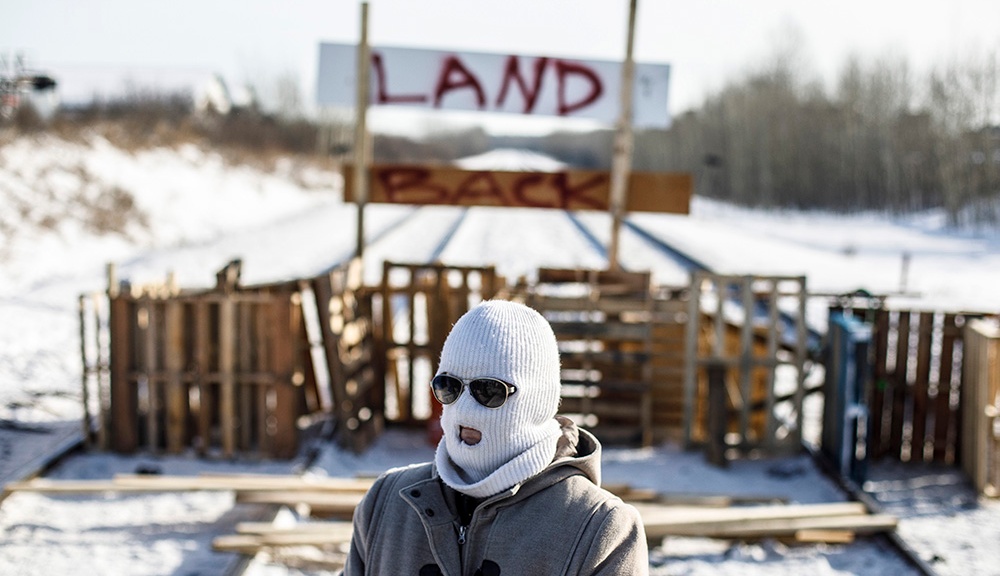
This article previously appeared in the February 25, 2020 edition of the National Post.
We have data for almost everything, but we lack information about what the Wet’suwet’en think and why they think it
✎ WAYNE K. SPEAR | JANUARY 26, 2020 • Current Events
WHEN DID YOU LEARN TO SPELL “Wet’suwet’en”? If you’re like many Canadians, you hadn’t yet heard of this First Nation, in British Columbia’s central interior, when the latest cable bill arrived. Now, everyone has a view. If opinions could be shipped to market, millions of barrels of them would be headed to Kitimat, B.C., for export.
I know the politicians’ positions, and I know where Extinction Rebellion and the Toronto anarchists stand. The only opinions I’ve had trouble sourcing are those of the Wet’suwet’en, whose interests every side of the aisle claims to be supporting. Did voting occur, and what were the results? I’ve read reports on consultations, but nowhere have I found voting data. The closer you get to the ground, the muddier things become. Amber Bracken, in her article, The Wet’suwet’en Are More United Than Pipeline Backers Want You To Think, mentions a survey that found 83 per cent of the Witset First Nation’s members were against the pipeline. The company that undertook this survey, she adds, doesn’t seem to exist anymore, and if there was ever a document, it appears to be unpublished. Whatever the views of the people, the Witset band council eventually voted to support the pipeline. Further east, 70 per cent of the Nak’azdli — another branch of the Dakelh tree — rejected an agreement with Coastal GasLink in a 2015 referendum that the chief overturned three years later, and the First Nation became the last nation to sign on. Less than 15 per cent of Nak’azdli’s 2,000 members voted.
Accurate, relevant data are critical — that’s why governments collect them. Every day, data firms solicit opinion on a range of matters. How popular are Canada’s political leaders? What do Canadians think about their health-care system? Do they trust the media, and how much? How do they feel about immigration, affordable housing, climate change? According to the Environics Institute, 49 per cent of Canadians say they’re better off than their parents were at their age. (Thirty years ago, that number was 60.) Seventy-one per cent of respondents answered “No” to the question, “In your opinion, is Alberta treated with the respect it deserves in Canada or not?” These aren’t just numbers, they are the raw materials for future political campaigns, government initiatives and public policy.
We have data for almost everything, but we lack information about what the Wet’suwet’en think and why they think it. As Robert Jago has written, “we don’t know how many chiefs are opposed to the pipeline, we don’t know for certain what percentage of people in the Wet’suwet’en country support or oppose the pipeline and we don’t know if the pipeline was approved by a referendum, a town hall or a simple vote in council. With that information gap, people grasp onto whatever numbers are presented to them.”
Some of the examples are trivial but make the point. A report coming out of a Feb. 19 public meeting, at a Houston, B.C., movie theatre, asserts that “about 200 people gave up three hours of their afternoon” to express community support for a pipeline. That’s a decent turnout in a town of 3,500, which is precisely the point that the author of the article wants you to absorb. I mean, imagine if only one-quarter of that number had turned out. Well, you don’t have to imagine, because there’s an article for that outcome, too, stating that “around 50 people were in attendance.” That’s not a small discrepancy. It’s a difference of magnitudes, like winning a majority government versus deciding you’d like to spend more time with your family.
Lyndsey Gilpin’s Feb. 21 article for the Columbia Journalism Review, A Pipeline Runs Through Southern News Deserts, concerns a 965-kilometre natural gas pipeline along the eastern coast of the United States that has much in common with the Coastal GasLink project. Both face opposition and are currently stalled, and both run through what Gilpin calls “news deserts” — areas where outside media “parachute in to cover major updates or catastrophes,” but otherwise ignore. The burden of reporting on these projects is left to local citizen-journalists and under-resourced independent media, and in the absence of consistent national reporting, the likelihood of misinformation and confusion increases. The people who live in news deserts are typically poor and, Gilpin writes, “stand to lose the most … from a lack of information.”
As if this lack of reliable information isn’t bad enough, some non-Indigenous pipeline opponents will tell you that the numbers don’t matter, because democracy is a Western colonial construct and what matters is the hereditary chiefs, not the views of the people. Nonsense. Band councils and traditional leadership have differing mandates and represent contrasting governance systems, but hereditary leaders are not monarchs, just as guesstimates aren’t facts. The concerns and aspirations of ordinary people matter. And we need to know what they are. ⌾


